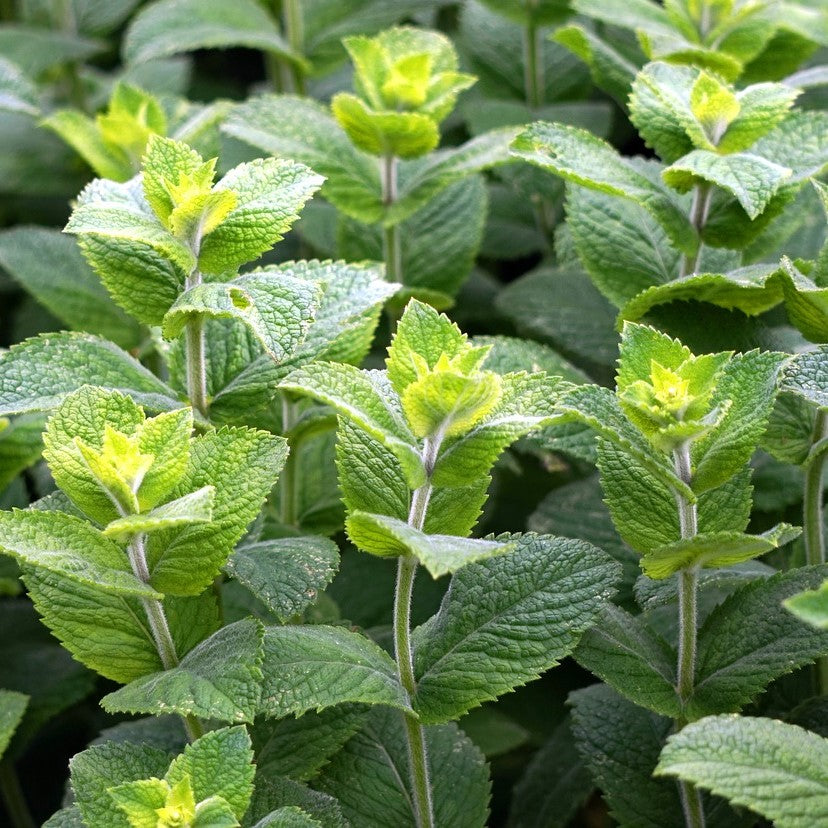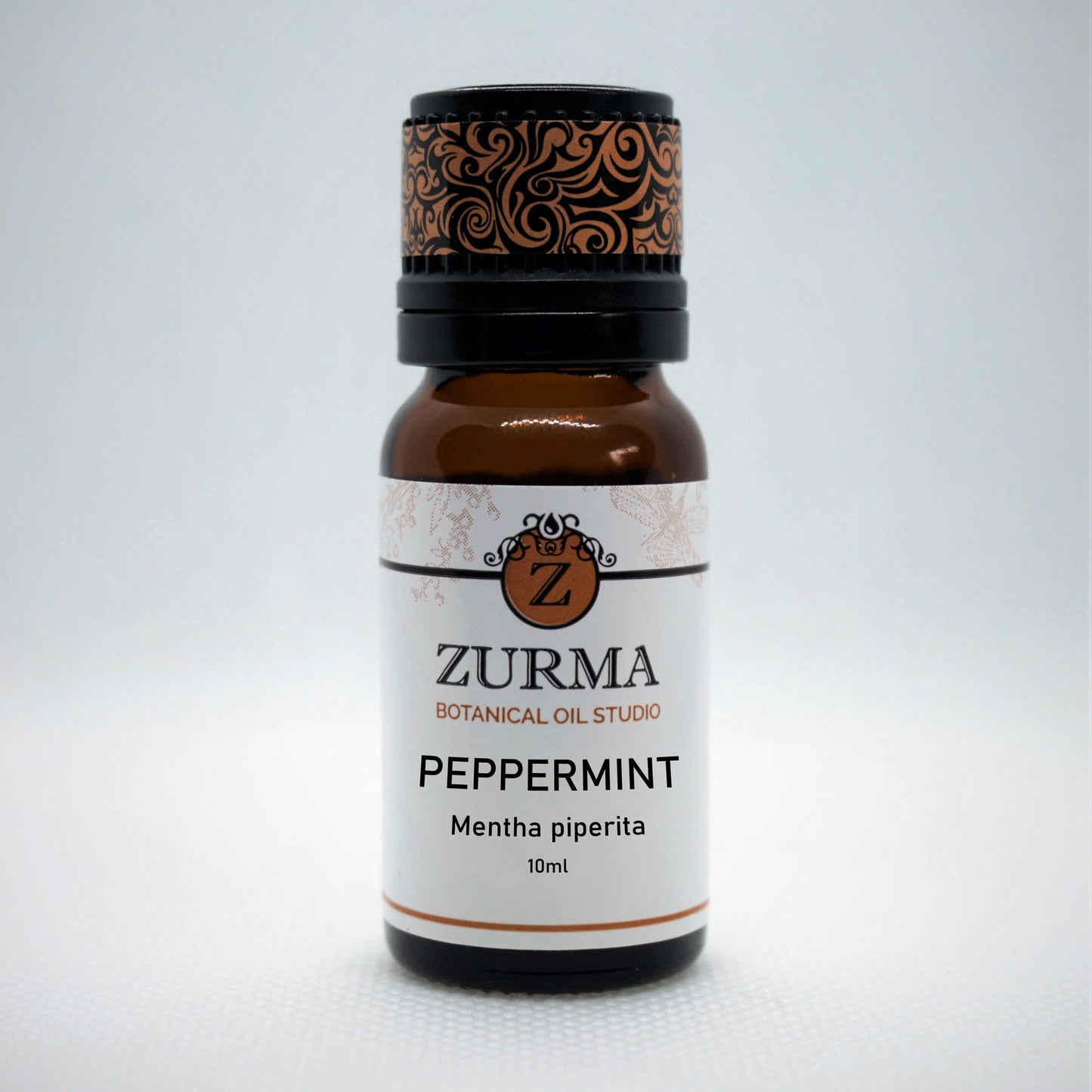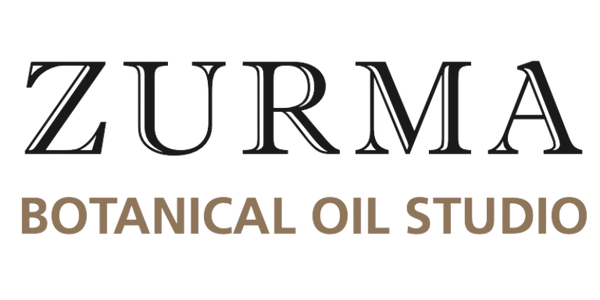Peppermint Essential Oil
Peppermint Essential Oil
Couldn't load pickup availability
Peppermint essential oil has a fresh grassy-minty, camphraceous aroma. A very popular essential oil both in scent and healing properties. The antispasmodic and expectorant actions of peppermint lends itself well to be used with steam e.g. as an inhalant to help clear and soothe the respiratory tract. A prime remedy for helping digestive disorders. Has a cooling and warming effect on the body that is stimulating and refreshing. Helps provide relief from muscular aches and pains.
Botanical Name: Mentha piperita
Method of Extraction: Steam Distilled
Part Typically Used: Leaves and Flowers/Buds
Country of Origin: India
Typical Main Constituents
Menthol - 45%
Menthone - 21%
1,8-Cineole - 5%
Menthyl acetate - 5%
Isomenthone - 3%
b-Caryophyllene - 2%
Menthofuran - 2%
Description: Pale yellow or greenish oil, has a fresh grassy-minty, camphraceous smell.
Actions: Tonic, Analgesic, Antiseptic, Antimicrobial, Astringent, Sudorific, Nervine, Vulnerary, Antispasmodic, Carminative, Stomachic, Diaphoretic, Expectorant, Vasoconstrictor, Vermifuge, Hepatic, Cephalic.
Special use: Its Antispasmodic action lends its self well to be used with steam, as an Inhalation. Prime remedy for digestive disorders. Cooling and warming effect on the body. Stimulating & refreshing.
Blends Well With: Basil, Rosemary, Lavender, Yarrow, Eucalyptus, Benzoin, Marjoram, Lemon and other mints.
Safety Data: Non- toxic, non- irritant in low doses. Strong oil use in moderation. Maximum use on skin of 5.4% (Robert Tisserand and Rodney Young. (2015). Essential Oil Safety. Second Edition.)
Aromatherapy / Home Use
Digestive: Abdominal cramps, Colic, Dyspepsia, Flatulence, Nausea, Indigestion, increases bile flow. Toothache.
Respiratory: Asthma, Catarrh, Sinusitis, Spasmodic cough - (In steam) Head colds.
Skincare: Acne, Scabies, Ringworm.
Circulation, Muscle & Skeletal system: Neuralgia, Muscular pain, Sprains, Palpitations.
Nervous System: Nervous stress, Vertigo, Headache, Migraine, Mental Fatigue, Fainting, Sciatica.
Immune: Colds, Flu and Fever.
General Essential Oil Safety Recommendations
- Do not take essential oils internally unless under advisement by a qualified medical professional.
- Do not use essential oils undiluted on the skin. It is always best to try a small patch test first of the diluted essential oil.
- People who are pregnant or have serious medical problems are advised to consult with a qualified aromatherapy practitioner before using essential oils.
- Use extreme caution when using essential oils with children. It is safest to consult with a qualified aromatherapy practitioner before using essential oils with children.
General Disclaimer
The product information provided on this website is intended for educational purposes only. The information provided is not considered to be complete and is not guaranteed to be accurate. The information contained in this website is not intended to be sufficient to provide diagnosis and/or treatment of medical conditions. It is recommended that treatment of serious health conditions be done with the help of a trained qualified medical practitioner.
Share


Beautiful oil
To ensure our essential oils are not diluted to adulterated, Zurma Essential Oils undergo rigorous testing, including Certificate of Analysis (COA) and Gas Chromatography-Mass Spectrometry (GCMS) analysis. This meticulous testing process guarantees the purity, potency, and authenticity of our oils.


